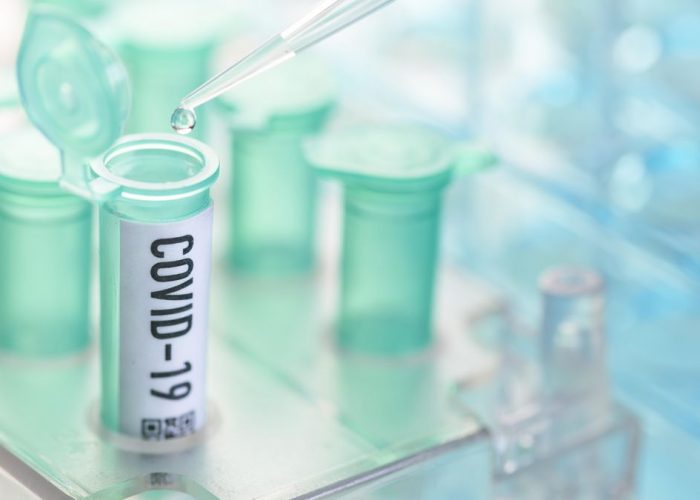Corona virus: vial with pipette in laboratory
getty
The last few weeks have not been kind to Covid vaccine stocks. Might there be an opportunity hiding amid the failure?
Last week, the World Health Organization reported that Gilead Sciences
GILD
(GILD) Remdesivir is essentially useless in preventing Covid-19 deaths. Days earlier, both Eli Lilly (LLY) and Johnson & Johnson
JNJ
(JNJ) halted studies on their individual Covid vaccine candidates because of unspecified safety concerns. Prior to that, AstraZeneca (AZN) halted its own Covid clinical trials after a patient suffered adverse effects from the vaccine being tested.
If nothing else, those events combined highlight the risk investors face when trying to play doctor in the stock market. What looks like a promising treatment one day can sour the next. And given that the bulk of investors do not have a degree in medicine or biotechnology, it really is just a guessing game based upon news events.
Even the experts and the sell-side analysts with the medical degrees arent very good at this, given that the weeks-worth of negative news hit the market unexpectedly.
But thats not to say that investors should steer clear of Covid 19 stocks. To the contrary.
Theres a great case to be made in owning shares of those companies that hit upon a viable vaccine that the FDA and other global pharma regulators ultimately approve. Question is: Which stocks to own?
The reality is that more than 150 vaccines are currently in development, and any one of those could prove to be a blockbuster product for its manufacturer. But unless youre going to own scores of publicly traded companies tied to those potential vaccines, you have to invest in Covid stocks by looking at what else the company has going for it.
Some smaller, vaccine players are almost singularly reliant on their Covid vaccine panning out. If it doesnt, you have little to fall back on as an investor. For that reason, investing in Covid companies that already have a broad portfolio of existing drugs and drug candidates makes a lot more sense at this point. If a Covid vaccine never pans out for a Big Pharma name, well at least you have a real business with real profits (and often dividends) to fall back upon.
Two that stand apart are Pfizer
PFE
(PFE) and Glaxo
GSK
SmithKline (GSK). Both have vaccines deep into testing (and, so far, neither has hit the kind of snafu that has sidelined others), and both are Big Pharma players already selling between $40 billon and $50 billion worth of products annually. Both also have deep benches of new-drug candidates with promising potential, and deep ties to smaller biotech firms working on potentially blockbuster drugs.
Better yet, despite the Covid hype, both stocks are down overall this year Pfizer, off by 2.45%; GSK down a much more painful 24.79%.
YTD performance for Pfizer (PFE) and GlaxoSmithKline (GSK
EEON Inc
As such, both shares are cheap relative to the industry (and particularly to the market as a whole) and both offer meaningful dividend yields. Pfizer sports a forward PE thats just under 15 and a yield almost touching 4%, while Glaxos forward P/E barely tops 12 and its yield in nearly 5.5%.
Pfizer is expected to submit its Covid candidate for emergency use authorization to the FDA in late-November. GSK isnt likely to submit its vaccine as quickly, but it has a different potential tail wind: Its vaccine is based on monoclonal antibodies (engineered in a lab to mimic natural antibodies produced by Covid survivors), which is similar to the treatment from Regeneron (REGN) that President Trump reportedly received during his bout with the virus.
If either companys vaccine earns the FDAs seal of approval, you can bet their shares relatively cheap valuation will vanish instantly as the stock price escalates on the news. Certainly, theres no guarantee that either Pfizer or GSK will earn that seal of approval, but if they dont, at least the shares are already inexpensive and their ongoing business are plenty strong enough to support the cheap valuations and the beefy yields.read more
Two Cheap Plays On A Covid Vaccine


